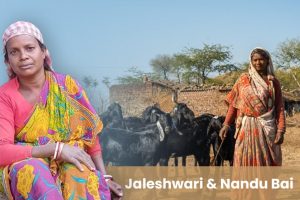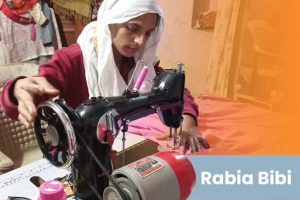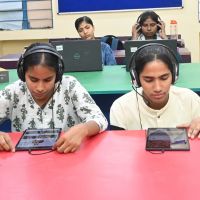Livestock farming plays a significant role in the Indian rural economy. Goats provide a valuable source of livelihood and pathway out of poverty, especially for women. It is now a crucial part of the Agro-Based Livelihoods programme. Women, landless agriculture labourers and marginal farmers rear 2-3 goats as supplementary income. Literacy India project karigari supports livestock rearing as a Livelihood option for a landless tribal community at Indore village Manoharthan Rajasthan and in several villages of Purulia District, West Bengal.
[divider height=”50″ style=”default” line=”default” color=”” themecolor=”0″]
Nandu Bai is a 35-year-old woman who lives in the Indore village of Manoharthana block Jhalawar. She has two children and a husband in the family. Her family collects dry wood from the forest and occasionally works on farms. There is no sustainable / permanent livelihood opportunity for the community.
In our survey and assessment, Nandu Bai expressed her interest in goat rearing. She managed her goat breeding for two years, and now she has five goats. Goats also are a source of milk for the family. Till now, she sold two male goats worth 10000/ each. For an impoverished family who just managed their lives in extreme poverty, this earning was sunshine in their lives.

Literacy India encourages women to be part earning members of their families.
41 Years old Jaleshwari Sing Sardar tribal women village folk of Lowakui took goat rearing as a primary source of her livelihood. Earlier, she had no identity, just a woman who would be busy doing household chores. Her husband works as a daily wage earner. They have four daughters and one son, and soon, they realised the burden of household expenditure. Livestock rearing was an easy option for her. She, like Nandu Bai, managed a good amount of income with the sale of goats she bred; she now has an identity that contributes to family income.
[divider height=”50″ style=”default” line=”default” color=”” themecolor=”0″]





